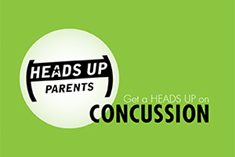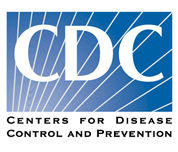TBI Toolkit
TBI 101 Pages: Adult | Resources for Youth
Background | For Parents | For Educators | For Healthcare Professionals
Background
What is a Pediatric TBI?
An injury to the brain of an infant, child, or adolescent that is due to an external bump, blow, or jolt to the head that disrupts the normal function of the brain. This may be an open head injury where the head is penetrated (e.g., gunshot wound) or a closed head injury that causes the brain to move within the skull (e.g., concussion, abusive head trauma [AHT]).
Worldwide pediatric traumatic brain injury (TBI) is the leading cause of long-term disability in children and adolescents (Gagner et al. 2017). Consequential sequelae associated with pediatric TBI, particularly moderate to severe TBI, include mental health symptoms, and cognitive impairments (Gagner et al. 2017, Ewing-Cobbs et al. 2017, and Kingnery et al. 2017). Within this toolkit there are a variety of resources which serve to educate those living with and/or working with those with a history of pediatric TBI.
TBI Severity
As with adults, TBI severity among children is classified as mild, moderate, or severe. The terms mild TBI and concussion are frequently used interchangeably. Severity of TBI is associated with the impact of the injury on brain functioning at the time of injury. For example, how long a teenager was unconscious after a car accident? This is often confusing as kids can have symptoms that "seriously" get in the way of them returning to school or play from injuries that are mild.
Key Terms
To help those living with TBI, as well as those providing services to this group of individuals the Colorado Kids Brain Injury Resource Network has developed a list of Key Terms. These can be found here:
http://cokidswithbraininjury.com/key-terms/
More about Mild TBI/Concussion
What is a concussion? Learn more by watching the HEADS UP Video. Also, on the CDC website find out more about pediatric concussion see: What is a concussion?
Symptoms
It is important to remember that after a concussion, it is very common for adolescents and children to report symptoms for the days and weeks following the injury. In most cases, these symptoms resolve on their own. Further information regarding symptoms will be provided in below.
Frequently reported symptoms after a concussion include:
- Headaches
- Dizziness
- Balance Problems
- Feeling slowed down or sluggish
- Feeling overstimulated by light, sounds, and/or too much information
To learn more about symptoms associated with concussions see:
Concussion Signs and Symptoms
Additional Resources for Mild TBI/Concussion
For more information regarding Colorado Legislation regarding Pediatric TBI and the Colorado Department of Education's Concussion Management Guidelines, as well as additional concussion-related resources see:
Concussion Information
Abusive Head Trauma (AHT)
AHT, which includes shaken baby syndrome, is a form of TBI. The cause of AHT is physical child abuse. AHT is most common in children under the age of 5. This type of injury is preventable. Often symptoms associated with AHT are serious and long-lasting. For more information regarding AHT see: CDC - Preventing Abusive Head Trauma in Children
Moderate/Severe TBI:
As noted above, moderate to severe injuries are often recognized immediately, as kids and adolescents who experience these injuries frequently require emergency medical transportation (e.g., transported to the hospital via ambulance). In many cases, kids with these types of injuries are acutely hospitalized for their injuries and many participate in inpatient rehabilitation. Children and adolescents with moderate to severe TBI's often experience persistent symptoms such as cognitive problems. For more information regarding long-term effects of moderate to severe TBI see: HEADS UP Severe Brain Injury Long Term Effects.
For more information regarding "What happens at a Pediatric Rehab Hospital Post-TBI?" check out the following brainline video:
Brainline - What Happens at Pediatric Rehab Hospital Post-TBI
References
Colorado Kids Brain Injury Resource Network. Colorado Kids Brain Injury Resource Network RSS. http://cokidswithbraininjury.com/educators-and-professionals/mild-tbi-concussion-info/. Accessed May 2018.
Concussion Signs and Symptoms. Centers for Disease Control and Prevention. https://www.cdc.gov/headsup/basics/concussion_symptoms.html. Published February 16, 2015. Accessed May 2018.
Ewing-Cobbs, L., Prasad, M. R., Cox, C. S., Jr., Granger, D. A., Duque, G., & Swank, P. R. (2017). Altered stress system reactivity after pediatric injury: Relation with post-traumatic stress symptoms. Psychoneuroendocrinology, 84, 66-75. doi:10.1016/j.psyneuen.2017.06.003
Gagner, C., Landry-Roy, C., Bernier, A., Gravel, J., & Beauchamp, M. H. (2017). Behavioral consequences of mild traumatic brain injury in preschoolers. Psychol Med, 1-9. doi:10.1017/S0033291717003221
Kingery, K. M., Narad, M. E., Taylor, H. G., Yeates, K. O., Stancin, T., & Wade, S. L. (2017). Do Children Who Sustain Traumatic Brain Injury in Early Childhood Need and Receive Academic Services 7 Years After Injury? J Dev Behav Pediatr, 38(9), 728-735.doi:10.1097/dbp.0000000000000489
Severe Brain Injury. Centers for Disease Control and Prevention. https://www.cdc.gov/headsup/basics/severe_brain_injury.html. Published February 16, 2015. Accessed May 2018.
What Happens at a Pediatric Rehab Hospital Post-TBI. BrainLine. https://www.brainline.org/video/what-happens-pediatric-rehab-hospital-post-tbi. Published June 9, 2017. Accessed May 2018.
What Is a Concussion? Centers for Disease Control and Prevention. https://www.cdc.gov/headsup/basics/concussion_whatis.html. Published January 31, 2017. Accessed May 2018.
Site Map
Contact Information
Denver
Rocky Mountain Regional VAMC (RMR VAMC)
1700 N Wheeling St, G-3-116M
Aurora, CO 80045
720-723-6493
Salt Lake City
VA Salt Lake City Health Care System
500 Foothill DR
Salt Lake City, UT 84148
801-582-1565 x2821
























